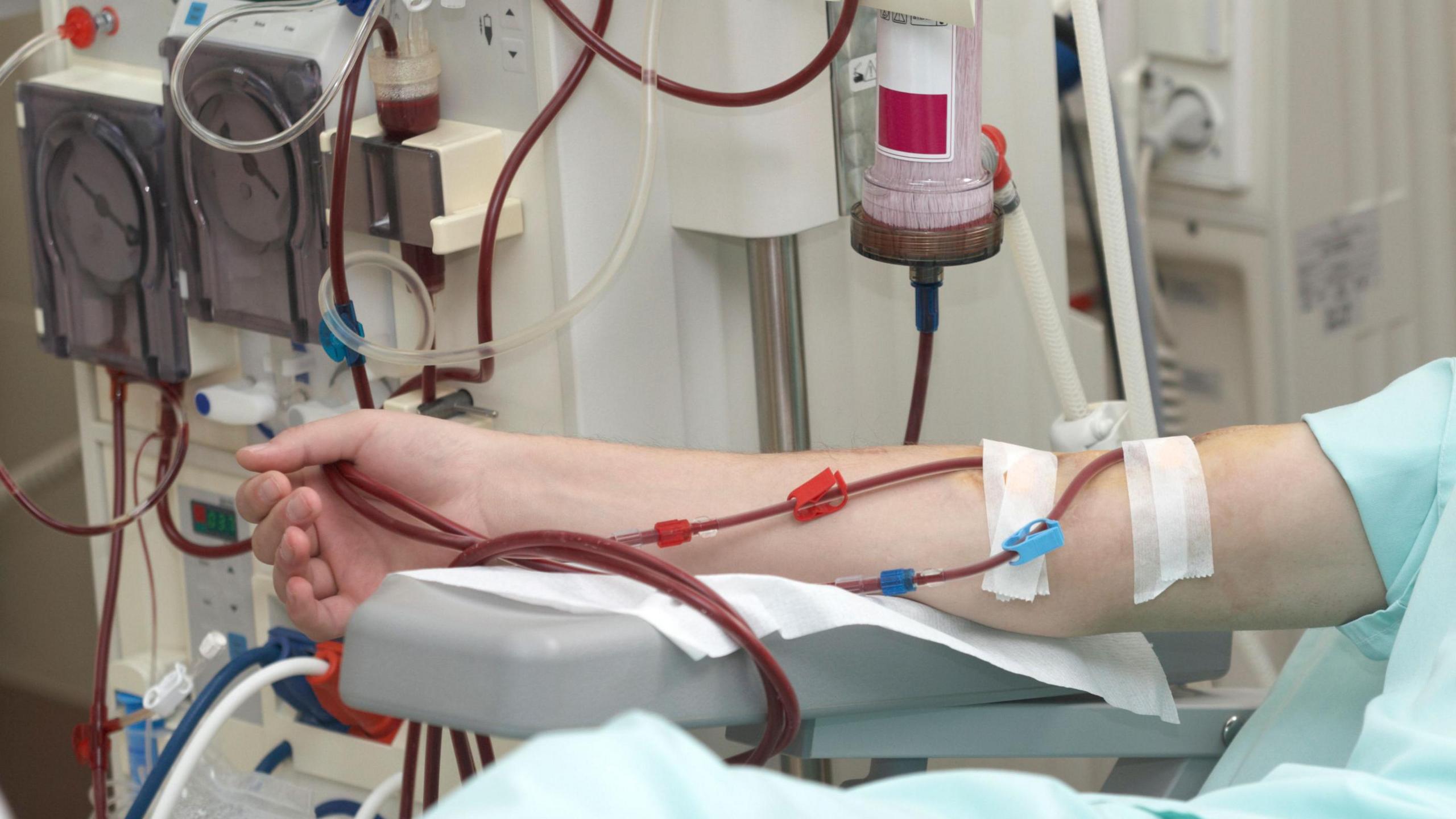Dialysis failures put 15 patients in hospital
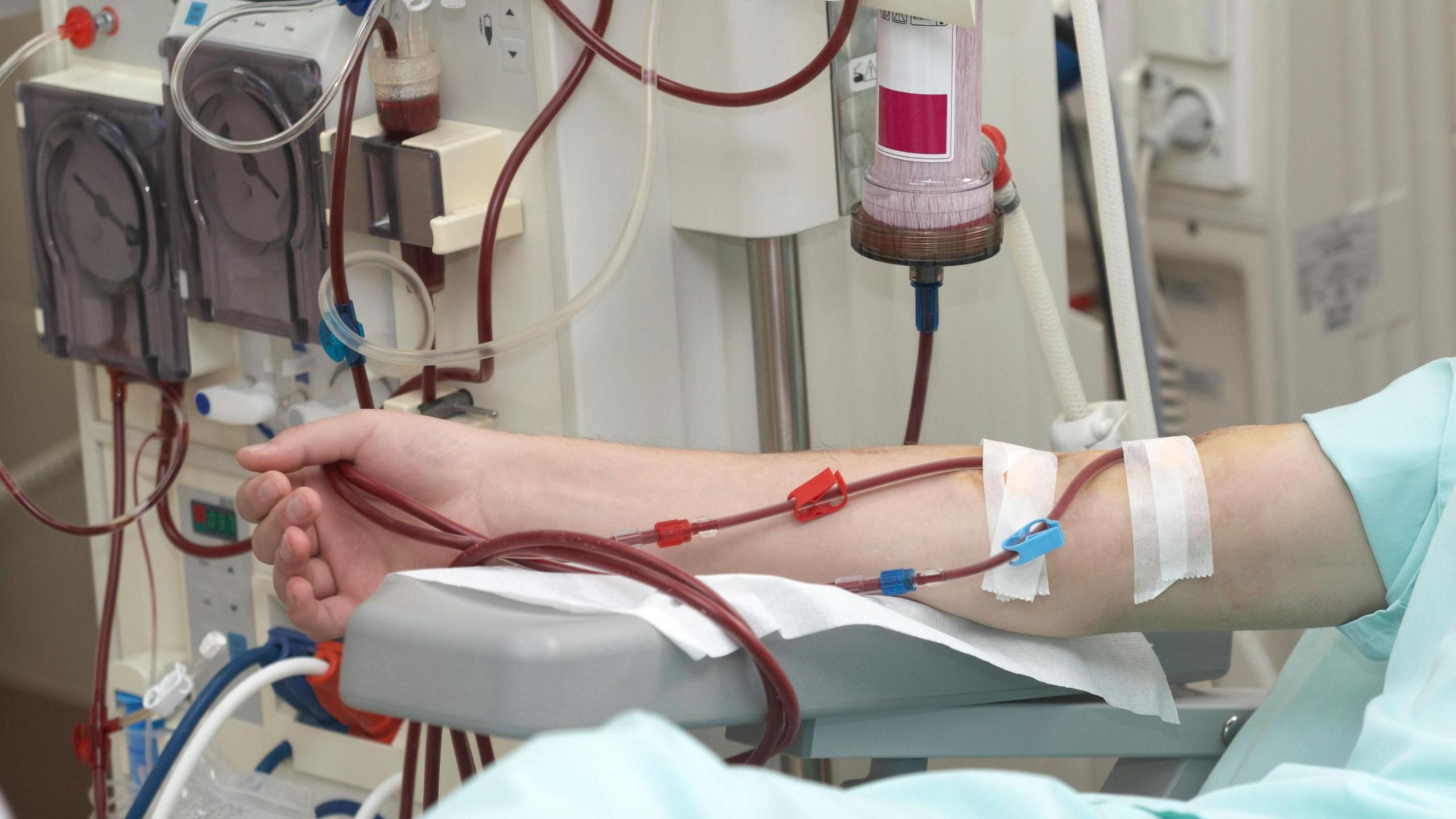
A report into failures at Bedford Renal Unit was initially due to be published in July 2024
- Published
Failures at an NHS community kidney dialysis unit led to 15 patients being admitted to hospital and one person having a stroke, a report said.
The investigation into the temporary closure of Bedford Renal Unit in February 2024 said that "harm was caused to patients" after water used in dialysis was not filtered effectively.
The local MP said the report confirmed lives had been put at risk.
East and North Hertfordshire NHS Trust (ENHT), which runs the unit, apologised to patients and staff.
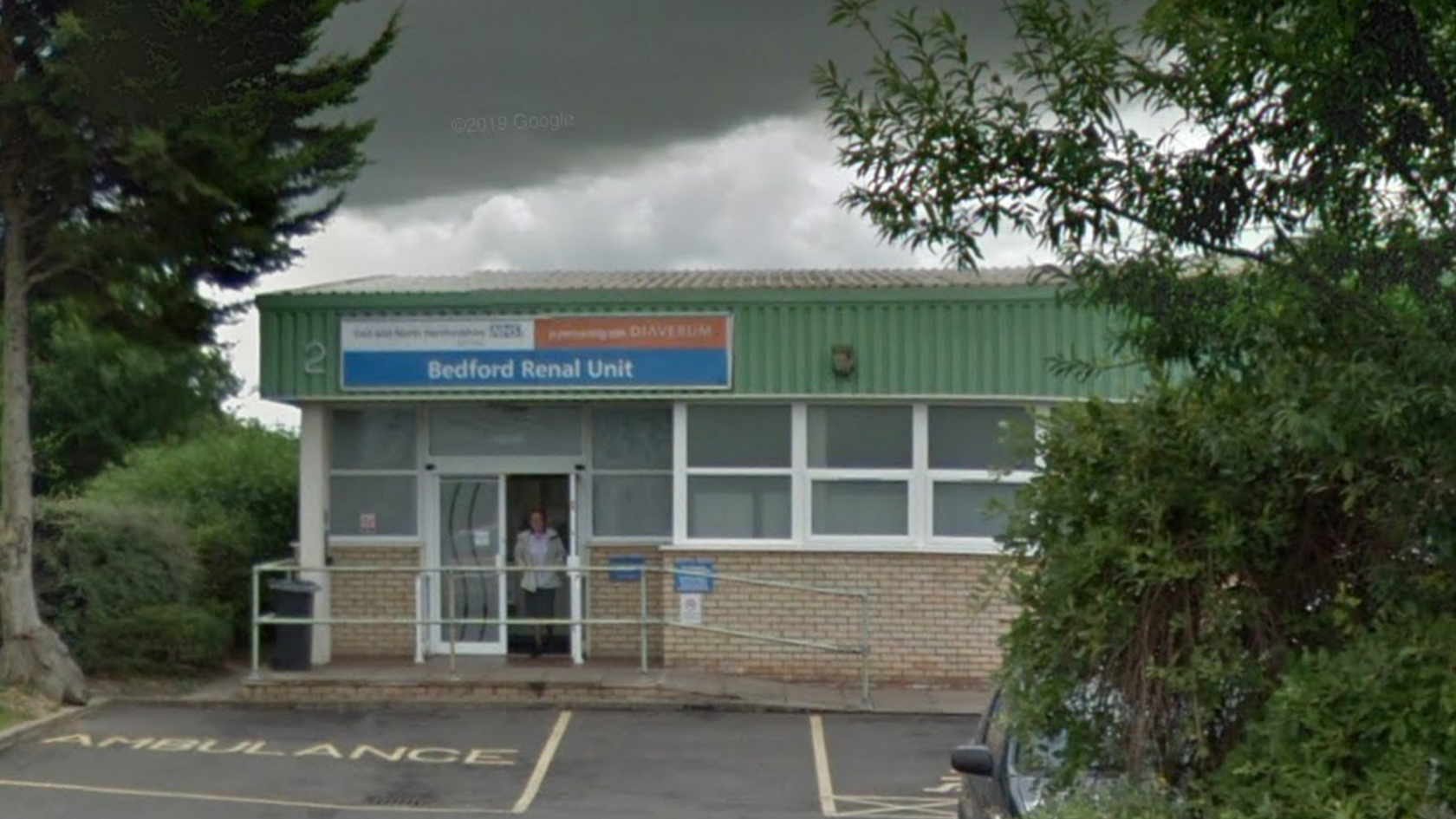
Ninety-six patients had to travel as far as 50 miles to alternative units, up to four times a week while the unit was closed
The purpose-built facility in Napier Road opened 11 years ago and was closed for six weeks.
The trust said it would not release its full report until after its January board meeting.
In a summary, published ahead of the meeting, external it said:
69 of the 97 patients saw a drop in their haemoglobin levels, a protein that carries oxygen around the body
This led to concerns about the quality of the water at the unit
15 patients were hospitalised because they became unwell
30 patients needed a transfusion, while the trust had previously said 23 patients were affected
One patient suffered a stroke which was likely to have been contributed to while being treated for anaemia
The trust said the 15 patients taken to hospital had made a good recovery.
The patient who suffered a stroke was still recovering from the effects of this.
Dialysis is needed if a patient's kidneys do not work properly and they are not able to clean the blood.
Dialysis fluid contains tap water, which needs to be purified before entering the blood stream.
ENHT said there were 28 areas for improvement.
It said protocols to test water quality were "outdated" and there was an "inappropriate response" to abnormal findings.
Its summary said an alarm panel to alert staff to poor water quality was "not in use".
There was also "inadequate installation" of softener components which remove calcium, magnesium, and heavy metals from the water as well as "inappropriate pump installation".
It added that those in charge were "not following manufacturer's guidance" and relied upon "temporary fixes" while demand increased.
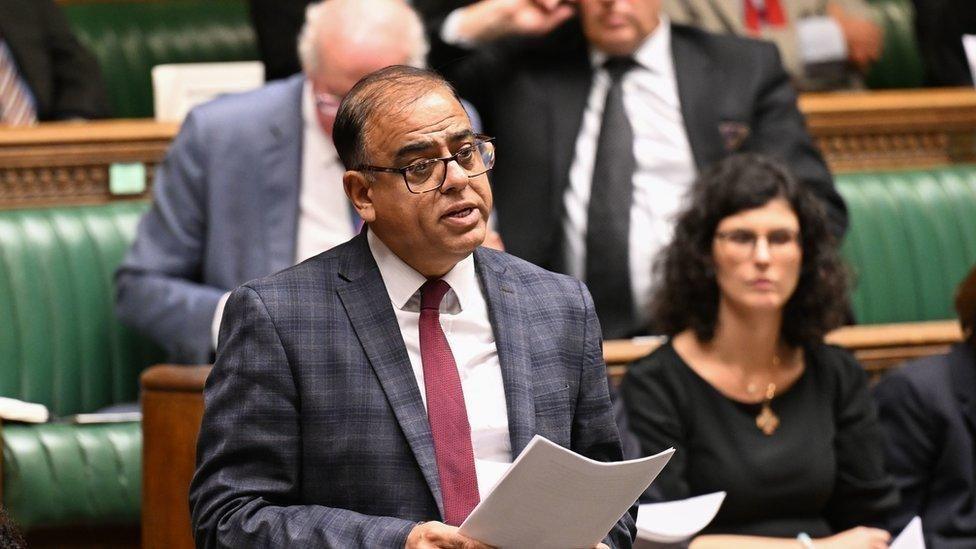
Bedford MP Mohammad Yasin said that the NHS estate was in a poor state of repair
The Labour MP for Bedford, Mohammad Yasin, said: "The report confirms there were multiple, serious breaches of patient safety.
"I am very concerned that basic checks, safety measures and maintenance were not being adhered to."
He said the government was working to improve the ageing estate in the NHS.
ENHT said the water treatment plant in Bedford along with one in St Albans had since been replaced, while a further unit at the Lister Hospital in Stevenage was being replaced in spring 2025.
In a statement on its website , external, Dr Justin Daniels, medical director at the NHS trust, said it acknowledged the findings and apologised for the impact on patients and staff.
"Where issues like this arise, we always take swift action – including suspending dialysis if necessary, and ensuring improvements are put in place rapidly," he said.
Dr Daniels said the monitoring of water quality had been improved.
The unit also closed for a short time in October 2024 but the trust said the decision was made as a precaution and water quality tests were passed.
Twenty new dialysis spaces were due to be created in a new modular unit at the Lister by March 2025.
Get in touch
Do you have a story suggestion for Beds, Herts & Bucks?
Follow Beds, Herts and Bucks news on BBC Sounds, Facebook, external, Instagram, external and X, external.
Related topics
- Published21 March 2024
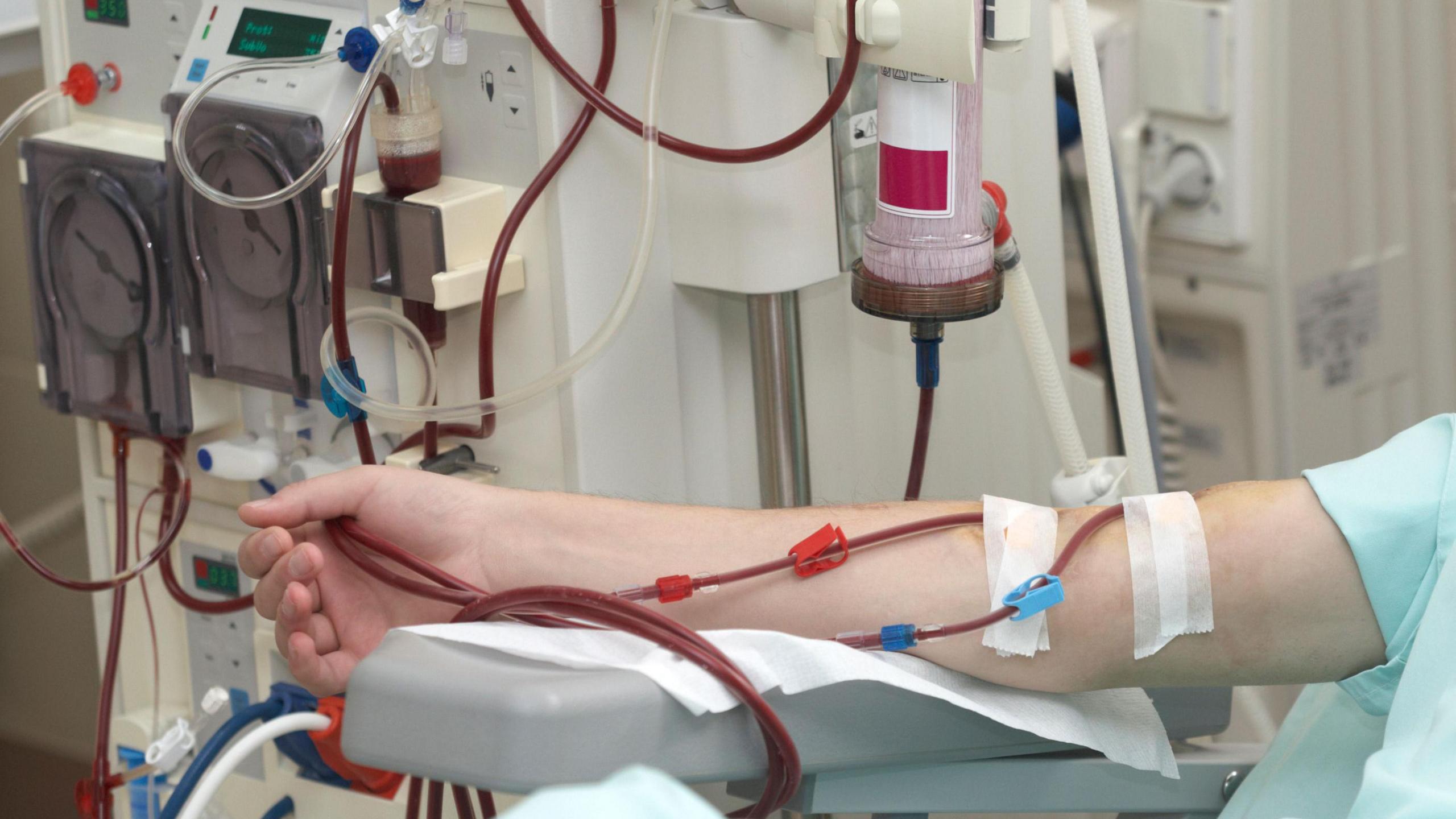
- Published5 June 2024
